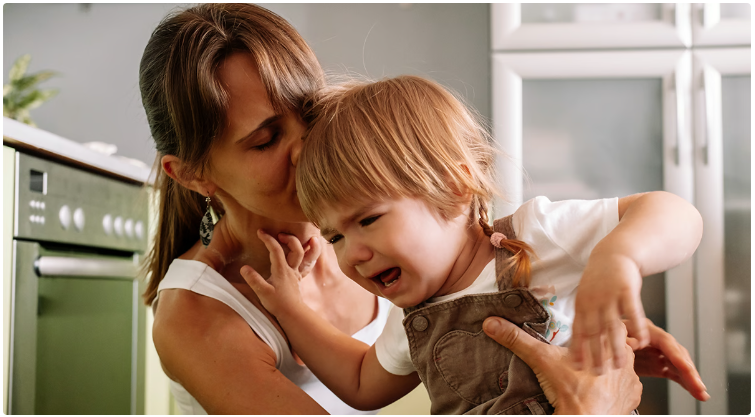HIGHLIGHTS:
- Bidirectional Relationship: The study emphasizes the bidirectional nature of the relationship between parenting practices and child behavior. It acknowledges that while parents influence their children’s behavior, children’s conduct can also shape parenting practices.
- Psychopathic Traits and Parental Care: Parents with higher levels of psychopathic traits displayed lower levels of parental care. This finding suggests that children with psychopathic traits may experience different caregiving dynamics.
- Complex Interaction: The study underscores the complexity of child psychopathology by revealing that a combination of psychopathic traits and conduct problems can result in distinct parenting practices, including harsh discipline.
- Different Dimensions of Psychopathic Traits: The research distinguishes between various dimensions of psychopathic traits, such as callous-unemotional, grandiose-deceitful, and impulsivity-need for stimulation. Each of these dimensions is associated with specific parenting responses.
- Practical Implications: The study’s findings offer practical implications for professionals working with children and adolescents facing conduct problems and psychopathic traits.
Parenting Practices that Can Impact Child Development
A recent study published in Child and Adolescent Psychopathology examined the relationship between parental practices, psychopathic traits, and their interaction with conduct problems in children.
The researchers discovered that parental practices had unique associations with different types of psychopathic traits, even after accounting for conduct problems.
This study offers valuable insights for families and clinicians, illuminating the intersection of parenting and child and adolescent psychopathology.
Children and adolescents often display conduct problems, which encompass a range of behavioral difficulties such as acting out, aggression, rule-breaking, and challenges in adhering to social norms.
Psychopathic traits, negative personality characteristics including lack of empathy, manipulative behavior, and impulsiveness, can also be present in children and adolescents.
The researchers focused on three dimensions of psychopathic traits in this study: callous-unemotional, grandiose-deceitful, and impulsivity-need for stimulation.
Previous research has shown that negative parental practices can contribute to the development of psychopathic traits in children.
However, it is important to consider that parental practices may also be influenced by the child’s behavior.
For instance, children’s oppositional and aggressive behaviors can result in increased parental control and harsh discipline.
This bidirectional relationship emphasizes the significance of examining both parental practices and child behavior when studying child and adolescent psychopathology.
Establishing the Link
Despite the importance of parental practices and psychopathic traits, the relationship between these factors has only recently received attention.
Gaining a comprehensive understanding of the complex interplay between these elements is crucial for developing effective interventions to support children with psychopathology in leading healthy and fulfilling lives.
To investigate this relationship, the study recruited participants from two different settings: a community sample in Greece-Cyprus, consisting of 768 parents and a clinical sample in the Netherlands, comprising 217 parents.
The clinical sample was drawn from a school for children with severe psychiatric illnesses. Participants completed self-report measures to assess psychopathic traits, parental practices and conduct problems.
The results of the study revealed a significant association between psychopathic traits and parental practices. Specifically, parents with higher levels of psychopathic traits exhibited lower levels of parental care.
Additionally, an interaction between psychopathic traits and conduct problems was observed in relation to parental control.
Children displaying high levels of both psychopathic traits and conduct problems experienced greater parental control.
In the community sample, parents of children with high callous-unemotional traits tended to employ inconsistent discipline.
Interestingly, this pattern did not emerge in the clinical sample, possibly due to the parents’ existing awareness of their child’s difficulties and their proactive pursuit of assistance, leading to different parental practices.
The Hidden Factors: Investigating the Relationship Between Parenting and Child Psychosocial Development
Furthermore, the study found that the impulsivity-need for stimulation dimension was associated with inconsistent discipline in the community sample, while the grandiose-deceitful dimension showed a similar connection in the clinically-referred sample.
The researchers acknowledged several limitations of their study. Firstly, the study relied on self-report measures, which may introduce bias.
Secondly, the study utilized a cross-sectional design, preventing the establishment of causality. Lastly, the inclusion of only two settings (community and clinical) raises questions about the generalizability of the findings to other contexts.
The study’s findings carry several implications. Firstly, they support the notion that parenting practices are not solely responsible for children’s behavior; children’s behavior can also shape parenting practices.
Parents may perceive children with high callous-unemotional traits as challenging, leading to parental exhaustion and less positive parenting practices.
Secondly, the findings underscore the importance of considering both psychopathic traits and conduct problems when evaluating parental practices.
This comprehensive assessment allows for a more nuanced understanding of the relationship between parenting and child psychopathology.
Understanding Parenting Dynamics: Exploring Potential Links to Child Behavioral Patterns
In addition to the previously mentioned findings, the study also revealed interesting connections between psychopathic traits, conduct problems and parental practices.
Specifically, the researchers found that children with high levels of callous-unemotional traits and conduct problems were more likely to experience harsh discipline from their parents.
This suggests that the combination of these two factors may amplify the negative parenting practices employed.
Furthermore, the study uncovered an association between the grandiose-deceitful dimension of psychopathic traits and inconsistent discipline in the clinically-referred sample.
This implies that children displaying grandiose-deceitful traits, characterized by manipulative behavior and a sense of superiority, may elicit different parenting responses compared to children with other psychopathic traits.
Finally
These additional findings highlight the intricate relationship between psychopathic traits, conduct problems, and parental practices.
They suggest that the specific combination of psychopathic traits and conduct problems can influence the type of parental practices employed, ranging from harsh discipline to inconsistency.
Understanding these connections is crucial for developing targeted interventions and support strategies for children and adolescents with psychopathology.
By recognizing how psychopathic traits and conduct problems interact with parental practices, clinicians and families can tailor their approaches to effectively address the unique needs and challenges faced by these individuals.
It is important to note that this study has provided valuable insights, but there are certain limitations that should be considered.
The reliance on self-report measures may introduce biases, and the cross-sectional design prevents establishing causality.
Additionally, the study focused on two specific settings, and further research across diverse populations and contexts is necessary to validate and generalize these findings.
Overall, this research contributes to our understanding of the complex dynamics between psychopathic traits, conduct problems, and parental practices.
By unraveling these connections, we can enhance our efforts to support and promote the well-being of children and adolescents with psychopathology, ultimately helping them lead healthier and more fulfilling lives.
















One thought on “Parenting Practices That Unknowingly Turns Children into Psychopath”